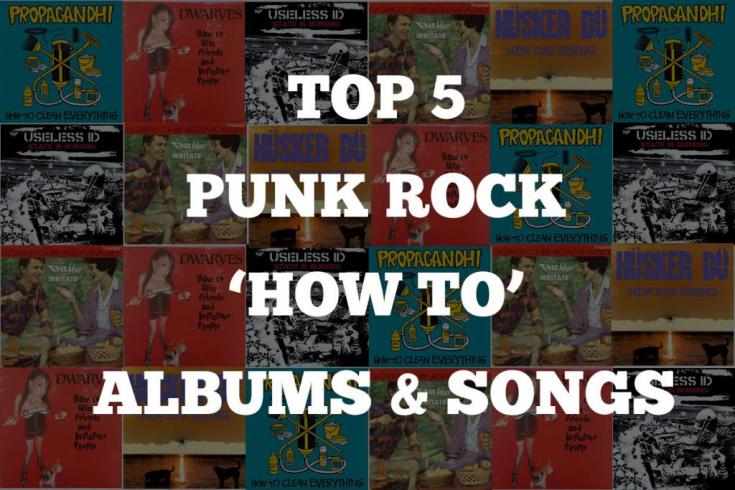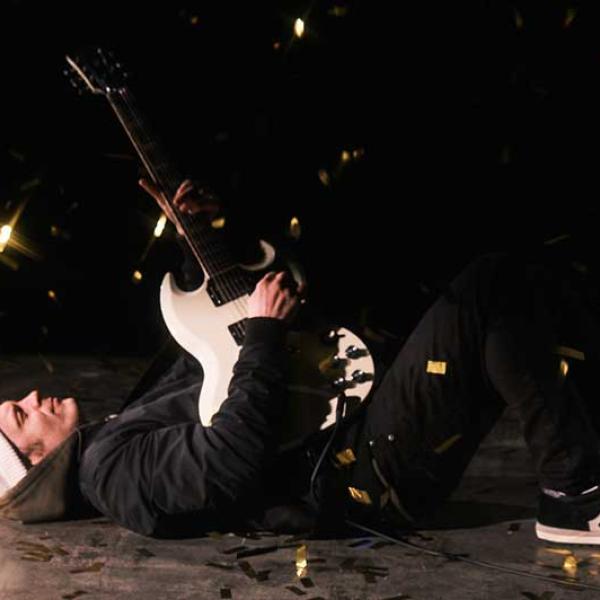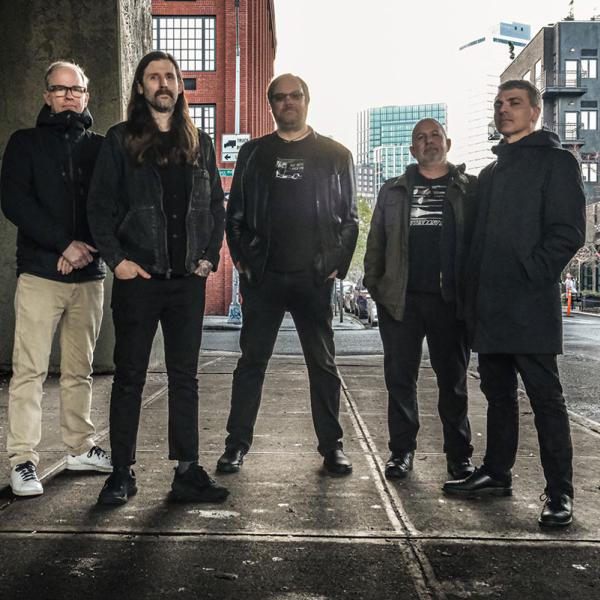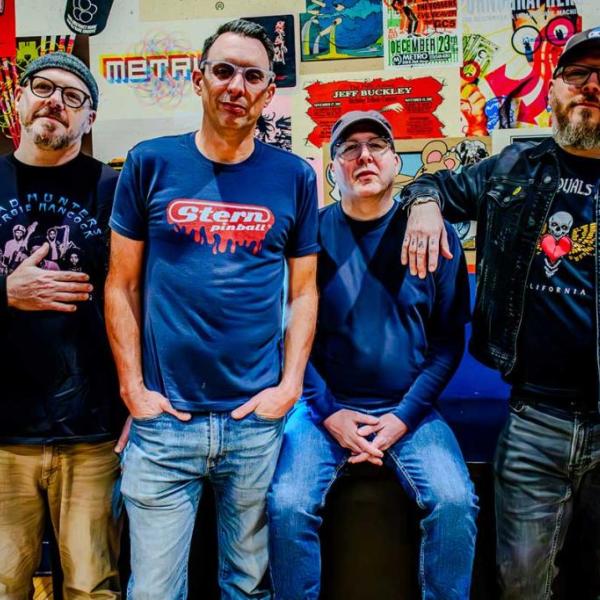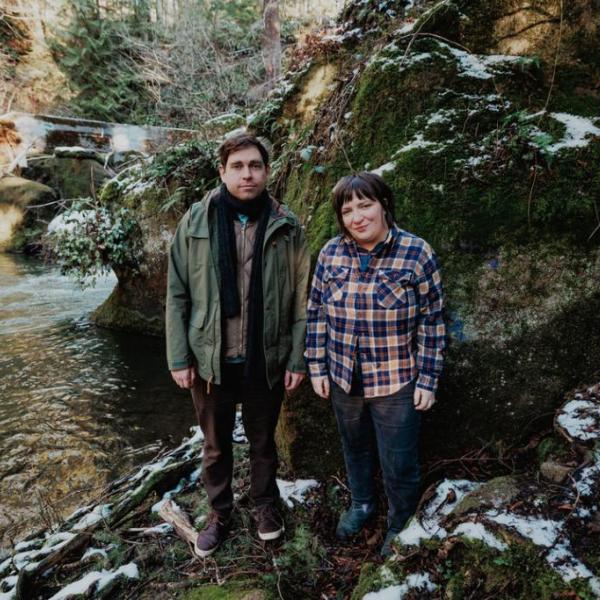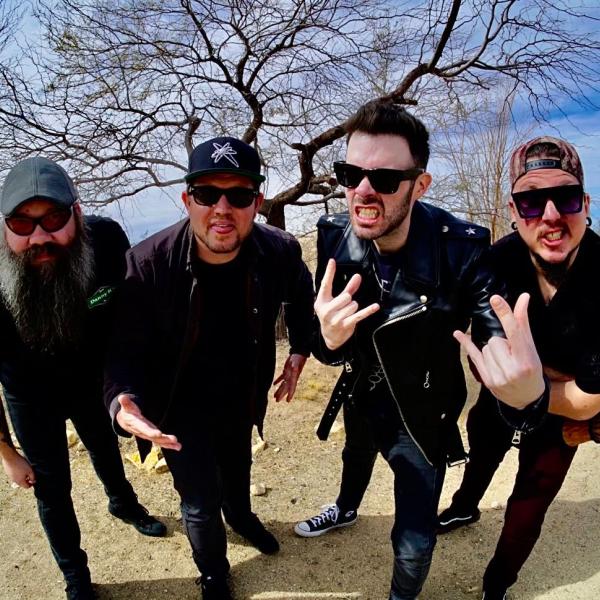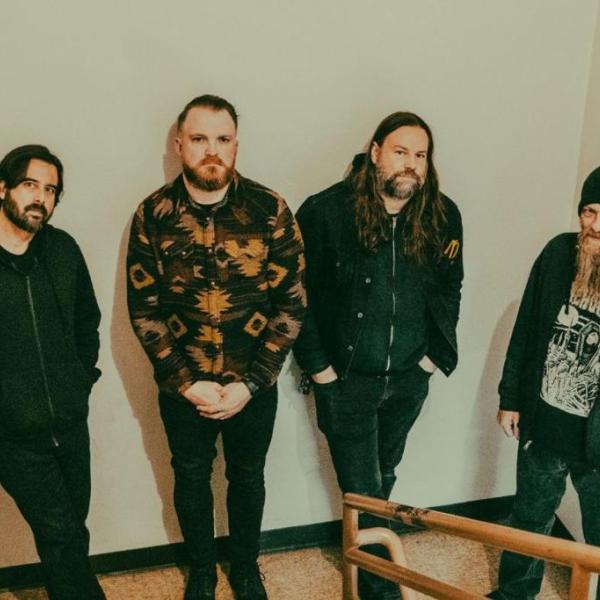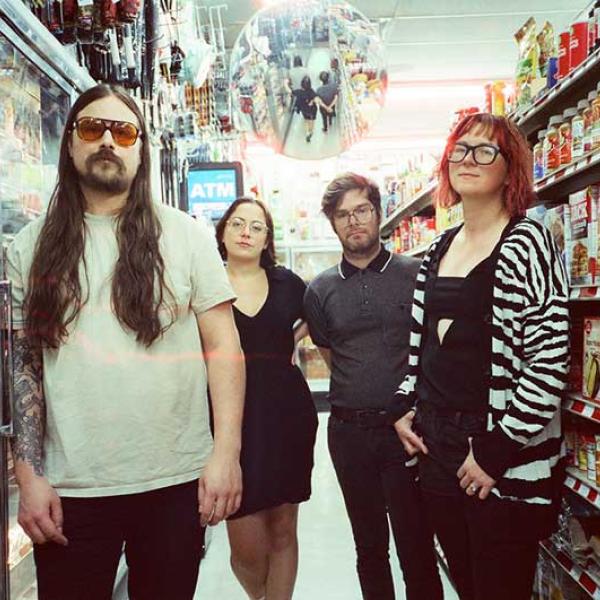Features
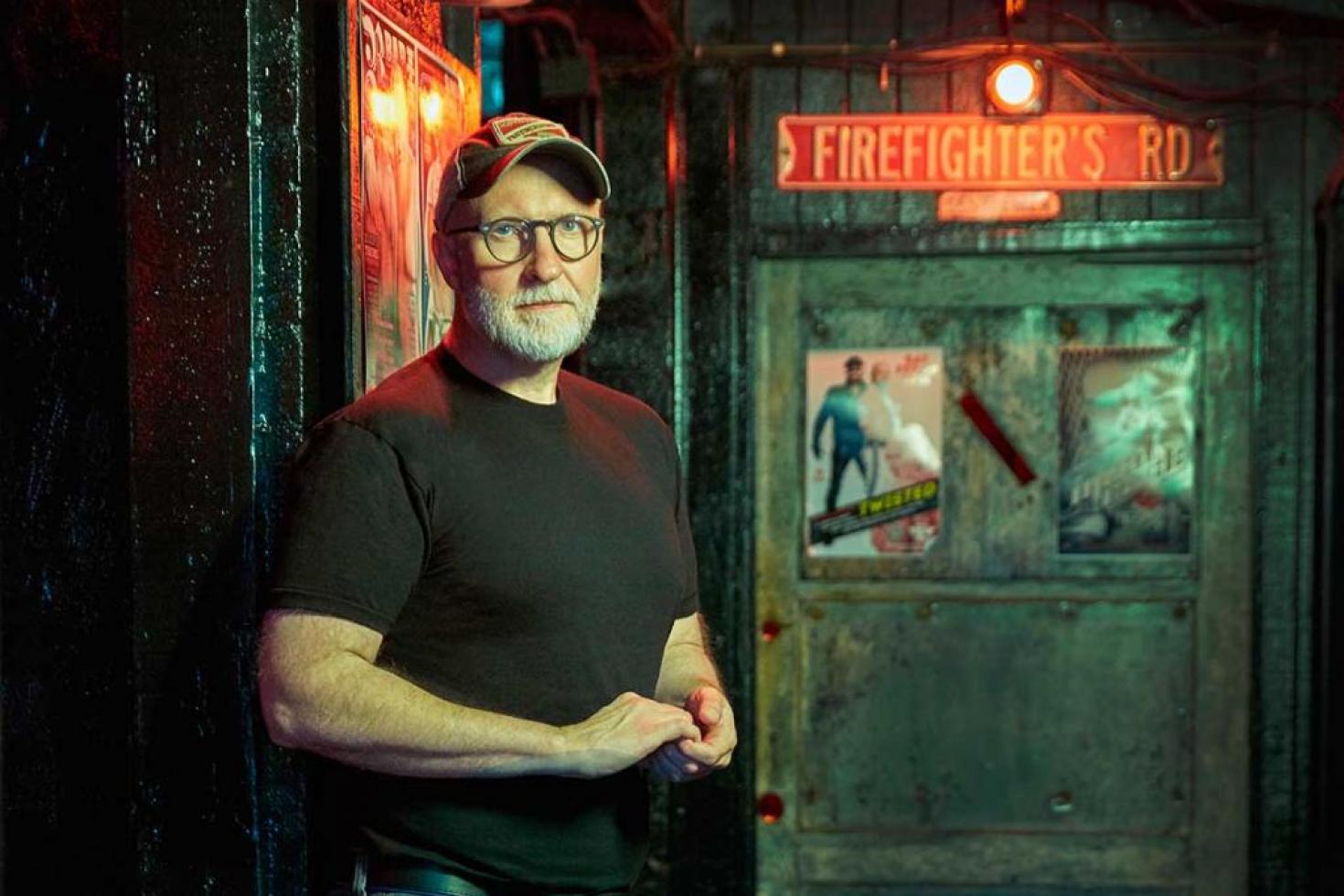
Barely a year ago, Bob Mould was in a happy place. Hell, the album he released back then was called ‘Sunshine Rock’. So how did he go from there to no longer holding back and releasing an album that comes with a lead single called ‘American Crisis’? Well, Mould started drawing parallels to the early 80’s when he was touring with Hüsker Dü and trying to figure out who he was and realized that going through this bullshit once, was more than enough.
It is not the only looking back Mould has been doing lately. Next to the release of ‘Blue Hearts’ (out tomorrow on Merge Records), he has also been busy with the 24-CD box set ‘Distortion: 1989-2019’ (out Oct. 23 via Demon Music Group), which chronicles his post-Hüsker Dü career. It spans over 30 years, all the way from ‘Workbook’ over the greatness that was Sugar right up to last year’s ‘Sunshine Rock’.
We caught up with Bob at home in San Francisco, just as the situation with the most recent fires seemed to take a turn for the better. (photo credit: Blake Little Photography)
PRT: What’s it like now in San Francisco?
Bob: Well, yesterday afternoon the wind changed for the better. So we were able to have a little bit of fresh air, get outside to run errands and things like that. Things are a little better. Thank you for asking. This is still early in the fire season so we have long way to go yet.
PRT: The fires do - unfortunately - make for one of the most current opening lines on an album ever. (opening track ‘Heart on my Sleeve’ starts off with the line ‘the Left Coast is covered in ash and flames / keep denying the winds of climate change’)
Bob: Yeah, how did that happen? Very unfortunate timing. But we have known there is a problem with climate change for decades. It’s not an original thought. It’s just stating the obvious for people. But it is a very timely way to open this record.
PRT: Up until recently you were living in Berlin. What were some of the biggest differences for you compared to living in the US?
Bob: Well, I think in Germany the news is the news, whereas in America the news is often entertainment as well as news. I guess that’s the first big difference. The four years I spent in Berlin, I was trying to learn as much as I could about the politics in Germany, looking at their process for politics with multiple parties creating coalitions. Which seems to be the model across a lot of Europe. America is more or less two choices. You get the red choice or the blue choice. And one of the biggest differences - and I think I touch on it in the song ‘Next Generation’ - is the idea that it’s okay to go out in the street and protest and speak up for what you believe in. In Berlin, and I’m guessing in most major cities in Europe, public protest is a way of life. I think on average it would be one day per week that I would see a demonstration in the streets of Berlin. And that’s very reassuring. That’s what democracy is really about. And it’s something that young people in America are learning now.
PRT: About the new album... what changed that you went from one of your most upbeat albums to a more pissed off album in less than a year ?
Bob: I think it’s a number of things. About this time last year I was still in Berlin and just started having these awful feelings that I had experienced all of this before. We had Ronald Reagan, a television personality who got a lot of his support from evangelicals in America. And then I look at Donald Trump and it’s more or less the same basic idea.
That was my starting point for drawing a comparison. In order to really make sense of it, I had to look back to around 1983 - about three years into the Reagan administration - to what was really happening. Trying to figure out who I was at that time and what I was doing. And I was a guy in a band back then. We went around the country playing shows with hundreds of other hardcore bands and bands that were outside the mainstream and we were all trying to build this new world. We weren’t necessarily fitting in so well with the music world of the early 1980s. And one thing that I still feel strongly about - I felt it as a child and I still feel it today - is that music does have the power to change the world.
So to look back on the early 80s and think about the trouble then and the trouble that America is in now, drawing parallels and looking at what any of us can do with very few tools, I think that that’s when I turned the corner and started to realize that I did not need a lot of bells and whistles or fancy poetry to tell people a very simple message which is that we are in dire straits right now. Sometimes being very direct with people is the best way to handle that and I think that’s what led to the simplicity and the urgency of the record.
PRT: Do you find it disheartening to come to the realization that we are still facing the same problems today as we were back then? Or are you still hopeful?
Bob: I’m very hopeful because I think the youth of America will not settle for this. They’ve seen how bad things truly are, they are mobilized and they will make a difference.
I worry about people my age though, who maybe at one time were more progressive in their thinking and who over the years have had success and like to protect their wealth. They are the ones who like to pretend problems like extreme racism and the marginalizing of the gay community, people of color and anyone who is at a disadvantage in the current system, don’t exist.
There is a portion of the country that is a bit of a lost cause. I don’t know how we are going to get some of these people back to the truth. They find lies and conspiracy theories to be way more entertaining than true politics. But I do think there is a lot of hope that people are finally waking up to what has happened. The youth of this country have a big job in front of them.
At this point in my life I think my job is to share history as I remember it. To tell my story and maybe make cautionary notes for people who have definitely gone down a completely wrong direction. But I do have hope. The truth always wins out. It’s just taking a bit longer right now.
PRT: I read that you had already written ‘American Crisis’ but deemed it too loud for ‘Sunshine Rock’. Is that the song that sparked ‘Blue Hearts’?
Bob: Yes, in a way. That is the oldest song that appears on ‘Blue Hearts’. I already had some other musical ideas like the idea for ‘Forecast Of Rain,’ which was a couple of years old as well. But the words for the song ‘American Crisis’ were written in April of 2018. And then as 2019 went on, I started writing a lot more guitar music. And then I went back to America and started to recognize what kind of emergency we were in. So already having a song like ‘American Crisis’ definitely made it easy to continue writing in that style of protest songs. Trying to shine a light on things that I think are not right. So yeah, it was the starting point and I think it informs a good portion of the record? I mean, there are other subjects that are spoken on as well during the record so it’s not strictly politics. But yeah, that was a good one to have as a starting point.
PRT: As you mentioned, the lyrics aren’t just political. Some of the songs are also personal. And some lyrics are very direct, others are more poetic. Which made me wonder... is there something like a typical Bob Mould lyric?
Bob: (laughs) I hope not! I know what you are asking though... and I’m flattered that I have enough lyrics that some of them could be considered prototypical. But no, I just start writing. I always describe myself as the person with a big rain bucket. When it rains, you go outside with a bucket and catch as much water as you can. And once you have all the water, then you decide what you will do with it. That’s pretty much how I look at the process.
Any kind of advice to songwriters I could give and that might shine a little bit of a light on my own process is just to keep your eyes open and take lots of notes. Write what you know, write what you see and just write as freely as possible and don’t worry about the meaning, the structure or whether everything rhymes. That’s not the creative part. That’s editing and that happens later. Be as open as you can and be very aware of what’s going on around you.
And then later on when writers shake their work and the meanings become more clear, that’s a separate process for me. And maybe that’s where I make the decision if something will be abstract or direct, poetic or visceral. Those things make themselves known.
As far as a typical song... I don’t know. It probably has the word ‘rain’ in it.
PRT: I read that you wrote a couple of the songs on the album in one long writing binge. What is the most rewarding for you as a songwriter? To have a whole song just pour out at once or to have to slave and toil over it until it all clicks together?
Bob: Generally, the memorable songs write themselves in about ten minutes. Any song that requires lots of work, it better have something of great importance at its core. I try to write music every day and try to write words all the time. Generally speaking, I work on a piece of music during the course of a day and then I put it away. I go to sleep, wake up the next morning and if I can remember everything I have done and it’s stuck in my head, then that’s a pretty good sign that it’s worth keeping. If I wake up in the morning and can’t remember what I did the day before, maybe I’ll come back to it and give it some more effort or just start on something else. It’s a weird process but the good ones are immediate, they write themselves and you never forget them. So that’s what we hope for.
PRT: You also produce your own albums. Is that something that grew organically over the years?
Bob: With Hüsker Dü we did recordings with various engineers. And then about three years in the band’s career we got involved with SST Records, who felt it was important for us to have a house producer that produced a lot of the SST music. That worked well for a few records. And then there was a moment where Grant and myself decided to take that job on with the two of us working on the records as producers. I think we had much more enjoyable results. So that’s where the self-producing began and over time it has almost made the most sense to me. As we talked about earlier, I put a lot of work into the writing and I think I have a good sense of what makes a good song and how to construct an album that tells a story from start to finish. It’s second nature for me. I enjoy producing my own albums, I enjoy doing production for other bands. Yeah, its sort of natural for me.
PRT: Is there a difference between Bob Mould the artist and Bob Mould the producer? Do they always agree?
Bob: I’m a pretty harsh critic of my own work. I’m pretty aware of when I got it and when I don’t have it and have to work harder at it.
I think as a producer in the studio when I’m working with Jon [Wurster] and Jason [Narducy], I have suggestions for how we should approach songs. I make demos at home and map out the structures. But we have been playing together for a decade now and speak the same musical language. They can hear a song and know how it should be interpreted and always end up making the basic composition much better.
Early on working with Jon and Jason, I was a little bit more of a producer producer. Where I was more like ‘hmmm, maybe do it this way?’. But now I sort of step back and unless there is a particular feature in a song that needs to be highlighted, I just let them figure it out. And with each record, we get better results doing that so at least I have learned that as a producer.
PRT: A lot of people have been working from home the last couple of months and I found that it becomes harder to draw a line where your work ends and your personal life begins. What is that like for you? Because you have your personal life, you have your music which is also your job and it is all linked together.
Bob: I generally work at home every day whether there’s a pandemic or not. It has not changed the way my days go where I get up in the morning and I’m doing press with you or working with booking agents or record companies. I still have the same schedule and the same amount of work. The difficulty for me is that I’m used to travelling all the time. My natural state is to have a bag packed with things ready to go by the door. And I don’t have that right now. That’s been strange.
I miss the interaction of travel, of performance and working with the band or playing solo shows and spending time with the audience after the show. All of that is gone for the moment and that makes things tougher. That’s my difficulty now. Being at home working not so much. I think I am actually in the best physical shape that I have been in in several years because I am getting enough sleep, I’m able to exercise and I can cook all my own food. So the good news is that when it’s time for me to go back to work on the road, I will hopefully be in real good shape.
PRT: Speaking of spending time with the audience, in your biography you mention that ‘it almost seems like the more you show of yourself, the more people want’. Does it ever happen that people who come up and talk to you have the feeling they really know you through the book, through your lyrics? Meanwhile you don’t know the first thing about them.
Bob: Yeah, that’s close to what happens 100% of the time. But it’s part of the job. When I am in Antwerp or Brussels and I am in a coffee shop two blocks from the venue, people will figure out that it is me and they will come up and say hello. But the people who follow and like my work, are really great people and they are very respectful. And almost all of them immediately tell me about the first time they heard my work or the first time they came to a show. Which is really helpful to me because then I have a sense of when they connected with the work. If someone comes up to me and says ‘I just found out about you through Silver Age’, then I’m like ‘oh, you’re a new fan’. But when someone says ‘I interviewed you when Zen Arcade came out’, I’m like ‘ohhh, okay’. So just that simple act is enough for me to have a more open conversation with people.
PRT: We also have to talk about ‘Distortion’. Because it’s not just the new album that is coming out, you also have a box set that chronicles your entire solo career as well as Sugar. What was it like to revisit all those albums?
Bob: It was sort of heavy. I have been working the Demon Music Group for about five years on and off around the idea of doing the box set. And I thought the Fall of 2020 was going to be a quiet time. But that was before ‘Blue Hearts’ made itself known to me. So now we have all of this music coming out. 30 Years of work with everything from ‘Workbook’ to ‘Sunshine Rock’.
The last three or four months were the heavy time. Going through everything, editing liner notes and images and mastering the records again. That’s when all the stories came back to life. The people, the places. I think it’s a really great package. We are re-imagining all of the album art to try and tell more of a story of a journey of the places I have lived and worked in. It’s nice to have that luxury of being able to rebundle everything and look at it from a different perspective.
PRT: One last question... pretty much everything you have done in your career was as a trio. Is that a matter of sticking with what you know? Or is there something about that formula that just feels right for you?
Bob: Hüsker Dü was my first real band and that was a trio. Sugar was my commercially most successful band. I guess. And that was a trio. And now I’m in a trio again. I’ve done four-pieces before. Two guitars, bass, drums. That was not the best way to go about it. I think guitars, bass, drums and keyboards was really fun for a couple of tours. I enjoyed that a lot.
But with a power trio, it’s just three people onstage and the communication is very direct. And for the audience there is no confusion who is making what sound. I find it’s a lot more work as a musician, especially as a guitarist. It really dictates the style that I play where it’s a lot of rhythm guitar and less lead guitar than most groups would have. But it feels more like jazz where we are able to react quicker to each other. When we improvise, the connection is much greater than when there are five or six people onstage. It’s just sort of my natural state.


